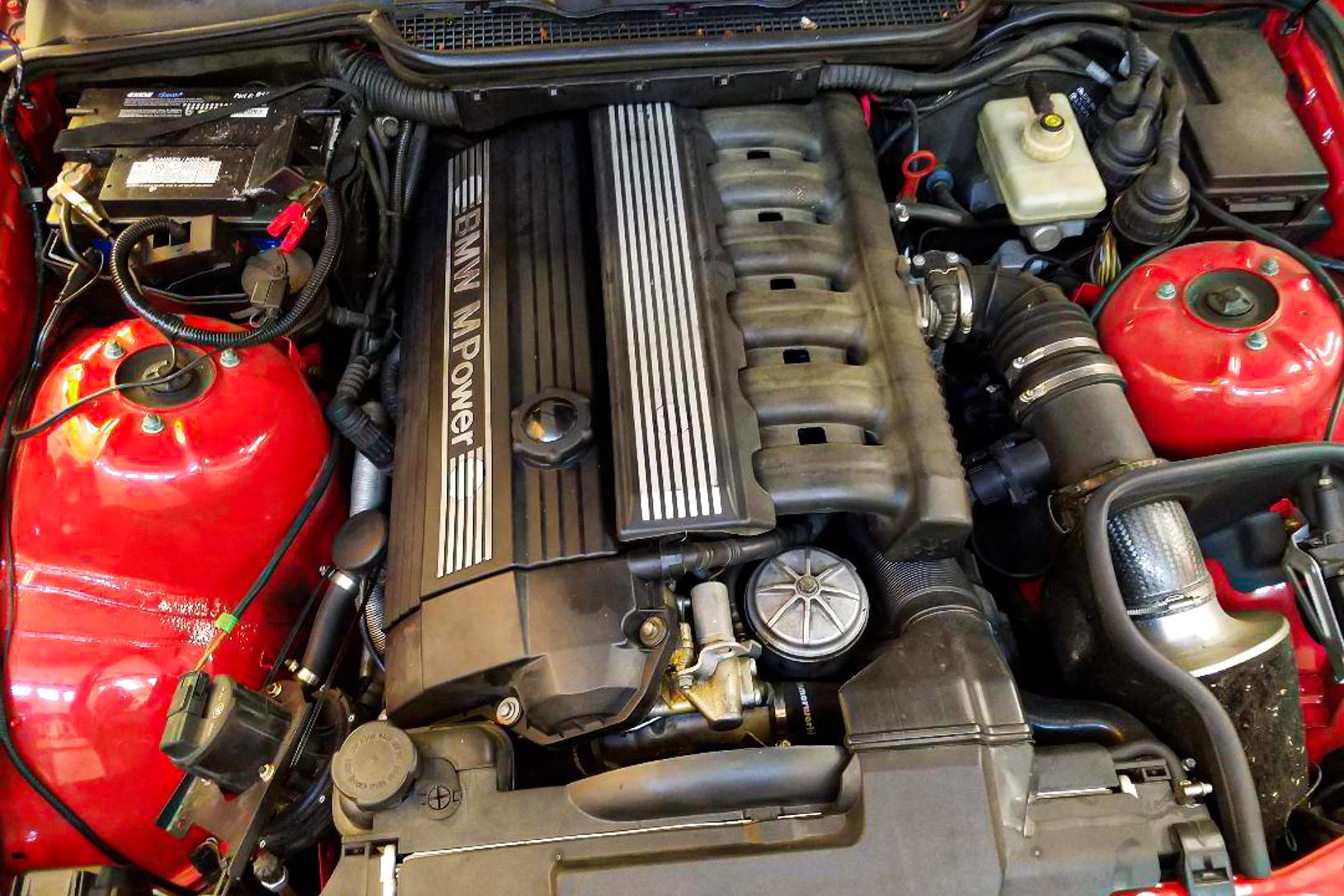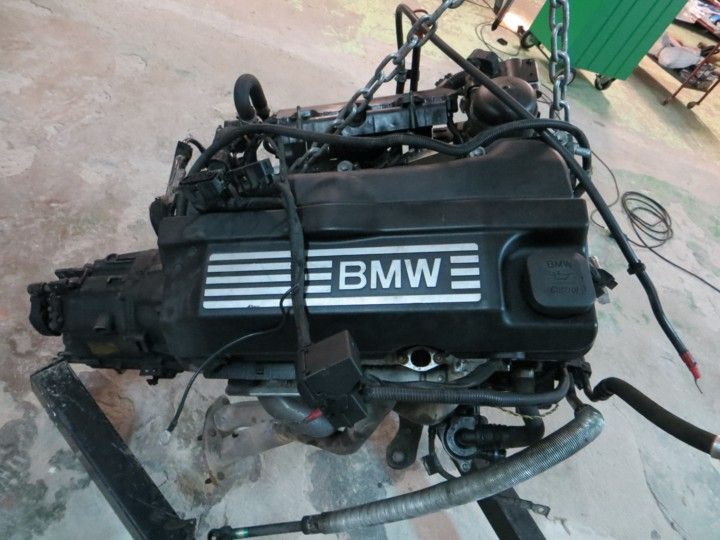The BMW 318ti: A Blend of Design, Comfort, and Efficiency
The BMW 318ti: A Blend of Design, Comfort, and Efficiency
Blog Article
Secret Functions to Try To Find When Buying an Engine for Automotive Applications
When considering the acquisition of an engine for auto applications, a number of essential functions necessitate careful analysis to make certain ideal performance and functionality. From power and performance capabilities to fuel adherence, toughness, and effectiveness to discharges requirements, each facet plays a crucial role in establishing the engine's suitability for specific vehicle needs.
Power and Efficiency
When choosing an automotive engine, buyers focus on power and efficiency to ensure optimal driving experience and effectiveness. The power outcome of an engine, frequently gauged in horsepower (HP) or kilowatts (kW), dictates the velocity, leading rate, and general capabilities of an automobile. Greater power scores normally cause quicker velocity and much better performance, especially throughout overtaking or bring hefty loads. Performance, on the various other hand, includes a wider spectrum of characteristics, including gas efficiency, discharges, reliability, and overall driving characteristics. A well-performing engine not just delivers power efficiently yet also operates smoothly across different speed arrays and driving conditions.
In addition, elements such as engine turbocharging, displacement, and hybrid technologies play substantial roles in enhancing both power and performance degrees. Ultimately, choosing an engine that offers a potent combination of power and efficiency guarantees a reliable and gratifying driving experience.
Fuel Effectiveness
When examining auto engine alternatives,Enhancing fuel performance is a critical factor to consider for consumers. The efficiency of an engine directly affects operating costs and ecological footprint. One vital variable influencing fuel efficiency is the engine's layout and innovation. Modern engines with attributes like straight gas shot, turbocharging, and variable valve timing can considerably improve gas effectiveness by boosting combustion procedures and decreasing energy loss. Additionally, the total weight of the engine and car, in addition to the aerodynamics, play essential roles in establishing gas intake.

Durability and Integrity
Accomplishing durable efficiency and dependable procedure is crucial for consumers evaluating the durability and dependability of automobile engines. When thinking about an engine for automobile applications, durability refers to the engine's capability to endure wear, tension, and extreme operating problems over an extensive period. Integrity, on the various other hand, implies that the engine can consistently perform its intended feature without unanticipated failures or failures.
Consumers need to try to find engines constructed with top notch materials and precise engineering to make certain longevity. Parts such as pistons, bearings, and crankshafts must be sturdy to manage the engine's power result without premature wear. In addition, engines furnished with advanced air conditioning systems, effective lubrication, and durable filtration devices often tend to show higher levels of dependability.
Normal upkeep and adherence visit homepage to manufacturer recommendations are also important consider protecting an engine's durability and integrity. By adhering to upkeep routines, using recommended liquids, and resolving any problems promptly, consumers can maximize the life expectancy and efficiency of their vehicle engines. Ultimately, prioritizing sturdiness and dependability in engine choice can lead to a much more rewarding possession experience with less unanticipated click disruptions.
Exhausts Conformity
Making sure conformity with emissions laws is a critical aspect of reviewing automotive engines for ecologically aware customers. With enhancing problems regarding air top quality and environmental impact, rigorous emissions criteria have been established internationally to lower damaging toxins launched right into the environment. When acquiring an engine for vehicle applications, it is important to consider its exhausts compliance to reduce the carbon impact and abide by lawful demands.
Modern engines are geared up with advanced emission control technologies such as catalytic converters, exhaust gas recirculation (EGR) systems, and careful catalytic reduction (SCR) to reduce hazardous exhaust gases like nitrogen oxides (NOx), carbon monoxide gas (CARBON MONOXIDE), and hydrocarbons (HC) These systems play an essential function in guaranteeing that the engine fulfills the defined exhausts criteria and runs within permitted restrictions.

Cost-effectiveness
When thinking about vehicle engine acquisitions, examining cost-effectiveness is critical for customers seeking both efficiency and worth. Cost-effectiveness in engine procurement entails greater than just the first purchase rate. It incorporates the useful content total costs connected to maintenance, fuel usage, and potential fixings over the engine's life expectancy. Opting for an engine that uses an equilibrium between long-term financial savings and in advance prices can lead to significant benefits for the consumer.
One trick element of cost-effectiveness is gas performance. Engines that are made to make the most of gas economic climate can lead to considerable cost savings over time, specifically for people that drive frequently or over fars away. In addition, taking into consideration the availability and cost of spare parts and maintenance can contribute to the total cost-effectiveness of an engine. Guaranteeing that repair and maintenance are sensible and obtainable can prevent unexpected economic concerns down the line.

Conclusion
To conclude, when acquiring an engine for auto applications, it is critical to think about essential attributes such as power and efficiency, fuel performance, dependability and longevity, exhausts conformity, and cost-effectiveness. These factors are necessary in making certain that the engine meets the needs of the car and operates properly in different driving problems - bmw 318ti. Making a notified decision based on these criteria will inevitably lead to a effective and reliable automotive engine purchase
From power and efficiency capacities to sustain sturdiness, effectiveness, and adherence to discharges criteria, each element plays an important role in identifying the engine's suitability for particular automotive demands. Engines designed to run on different fuels such as electrical power, hybrid systems, or biofuels can supply enhanced gas economy and lower exhausts contrasted to traditional gasoline or diesel engines. Customers need to carefully think about the fuel efficiency rankings and innovations included right into automotive engines to make informed buying choices that line up with their priorities for cost savings and sustainability.
When taking into consideration an engine for automotive applications, sturdiness refers to the engine's capacity to hold up against wear, anxiety, and rough operating problems over a prolonged period.In final thought, when buying an engine for auto applications, it is vital to consider key features such as power and performance, gas resilience, reliability and efficiency, discharges conformity, and cost-effectiveness.
Report this page